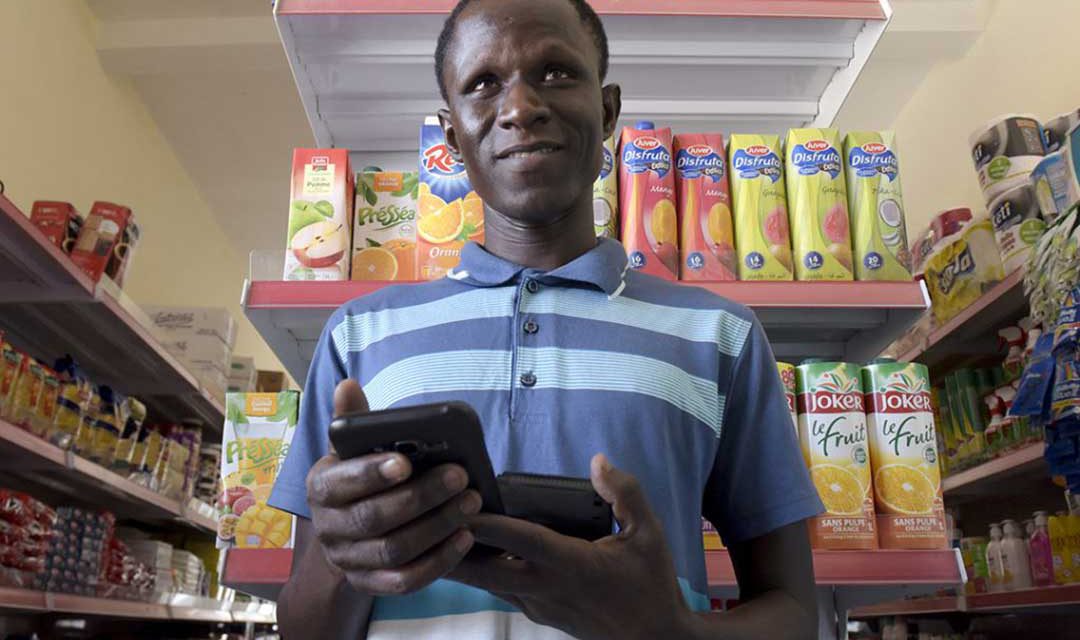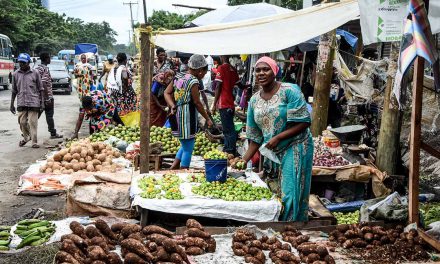Africa: innovation
Success in Africa needs innovative business models that take account of the way people interact in Africa, not only new technology
By Toby Shapshak
“Africa is not for sissies,” is a phrase you’ll often hear in South Africa about doing business on the continent. It reflects the challenges, and opportunities, that Africa presents, while revealing a particularity about South Africa, which apparently thinks it is not an integral part of its own continent. While Africa’s challenges can have a negative impact on doing business— no matter how booming the continent is—the IMF’s estimates of 4% growth for sub-Saharan Africa this year is better than the 3.4% global economic-growth outlook. “Africa is an increasingly complex continent on which to do business, and every market in Africa is different,” says Arthur Goldstuck, managing director of South African researchers World Wide Worx. “This means that doing business in traditional ways is likely to fail in many of these markets.”
The complexities of doing business that he identifies include challenges in gaining a market, and in addressing the needs of each market and its needs for innovation. “All businesses have to overcome the inertia of habit and ‘the way things are done’ in each market,” says Mr Goldstuck. “They have to find ways both of shifting consumer and business behaviour, and of gaining a slice of wallet share.” While businesses entering Africa may face challenges as regards technology, he adds, they may also need to review their business models. Businesses from more developed markets often make the mistake of applying the methodologies that work in their home markets in Africa. Just as mistakenly, they may sometimes attempt to use the same business practise in various countries without realising the stark differences between them— especially in regions as diverse as west, east and southern Africa.
Being innovative in doing business in Africa is not “a trick question”, says Erik Hersman, the co-founder of three of Africa’s most successful ventures, real-time monitoring service Ushahidi, Nairobi’s iHub incubator and co-working space and BRCK, an internet connectivity device that has morphed into a remarkable education provider. “You need to be very innovative in Africa to succeed, thinking creatively at both the mundane tasks that we sometimes fall into rituals on, as well as the big sexy strategic initiative. Africa as a whole provides a great deal of friction for any company, those who succeed find ways to optimise for the challenges through creative solutions.” Any of the initiatives Mr Hersman has helped to found from his base in Nairobi, Kenya, demonstrates this. Arguably the poster child of Africa innovation remains M-Pesa.
This mobile money service works on everything from the most basic cell phones and at last count saw 40% Kenya’s GDP pass through it. Its provider, Vodafone-owned Safaricom, has said that its daily transactions have reached $29 million, or $895 million a year. Mr Hersman cautions that innovation has to be adopted throughout the operation, including around the business model. “A lot of people fall into the trap [of thinking] that innovation on technology is enough. It’s not. You need to think creatively on the business model as well. For example, many of the biggest companies in the tech world—Google, Facebook, SpaceX—are working feverishly hard on the most innovative tech I’ve seen in years. We’re talking internet by high-altitude balloons, drones that shoot internet via laser to the ground, low-cost satellite mesh networks. It’s like science fiction books coming to life.
“However, what they’re missing is that you don’t win if you can’t come up with a ground game in Africa. In the internet world this means the ‘last metre’, where ordinary Africans use their phones and are only willing to spend Ksh 10 ($0.10) per day at most. Without innovation on the business model for internet in Africa, you can’t survive this.” Being aware of the context of innovative business practise is also key to operating successfully in Africa, says Mr Goldstuck. “Possibly a bigger challenge is that vicious American mantra, ‘go big or go home’, which keeps venture capital and start-up funds out of African markets. Often the opportunities available are small, but they can change lives,” he adds.
“The ability to, and appetite for, going small will elude most businesses coming into Africa, but it’s what is needed most. The South African equivalent of that mantra is ‘Africa is not for sissies’, which is a terribly backhanded compliment. It harks back to the world of playground bullies, and implies one cannot tread gently on this continent. Many individuals and companies that have combined business with heart have learned that one can be very gentle indeed.” Mr Hersman says: “Africa’s a big place, so the challenges can vary greatly depending on the market(s) that you’re in. In Kenya it might be ridiculous customs duty on component imports, while in Ethiopia it is politics holding business at bay. Or it could be that you’re stuck in a land-locked Malawi or Chad and all the issues that come with that.”
He adds that businesses may sometimes also have to deal with outdated regulations, which make doing business more difficult. However, some countries are trying to make the registration of companies easier and digital. “Some, like Rwanda, do an amazing job of on-boarding new business into the country.” Mr Hersman says he’s been impressed by two Kenyan companies that are using creative business models. One, Sendy, is converting thousands of motorcycle taxis and delivery riders into a network of on-demand package delivery service. Having started in Nairobi, they are now present in two other Kenyan cities. He expects to see them expanding into other countries. Another business that has impressed him is M-Kopa Solar, which uses M-Pesa to allow people to buy-to-own a solar kit that replaces kerosene as an illuminating fuel.
When he visited Kenya in July 2015 for an entrepreneurial summit, US President Barack Obama visit the M-Kopa kiosk, generating huge publicity for the company. The company offers its customers a low-cost home lighting solar kit that can light their homes, and also provides the financing. Buyers use mobile money to pay weekly instalments, with each payment allowing a further week of operation. Once fully paid off, the device is unlocked. Last year, M-Kopa won a Zayed Future Energy Prize, an annual award presented by the United Arab Emirates to “celebrate achievements that reflect impact, innovation, long-term vision and leadership in renewable energy and sustainability”, according to its website.
“Africa presents great opportunities for business innovation,” says M-Kopa’s CEO, Jesse Moore. “The traditional view is that the continent is ‘cursed by a lack of infrastructure’—such as electricity grids—but this lack of infrastructure actually presents the opportunity to leapfrog to new approaches, such as off-grid distributed solar.” Businesses aiming to reach mass markets of lower-income customers in Africa will need to innovate as regards their business models, he suggests. “ A lot of money is spent at the ‘base of the economic pyramid’, for example over $1 billion per year on off-grid energy in Kenya alone,” he says. “But it’s not spent in bulk: money moves in very small increments and in high frequency—a billion dollars made up of billions of $0.50 transactions.
So businesses need to adapt to reach these consumers in affordable ways, and that means throwing out the rulebook on pricing and payment collection, and being creative.” Like M-Kopa, many innovators are thinking about how to address this question. Mr Hersman advises businesses interested in Africa to “spend face-time” with people, both inside the company and with partners. “Business is relational here. You’ll likely have to develop young talent, so plan for it. Also plan on how you’ll keep this talent long-term. Think fast, be creative.” Mr Moore, who was part of the team that launched M-Pesa, adds: “Great opportunities await for those who have the endurance to see things through, conducting business in the right way and with a view on the long-term.”
Toby Shapshak is editor-in-chief and publisher of Stuff and a contributor to Forbes. His TED talk on innovation in Africa has over 1.4 million views, and he has been featured in the New York Times.













